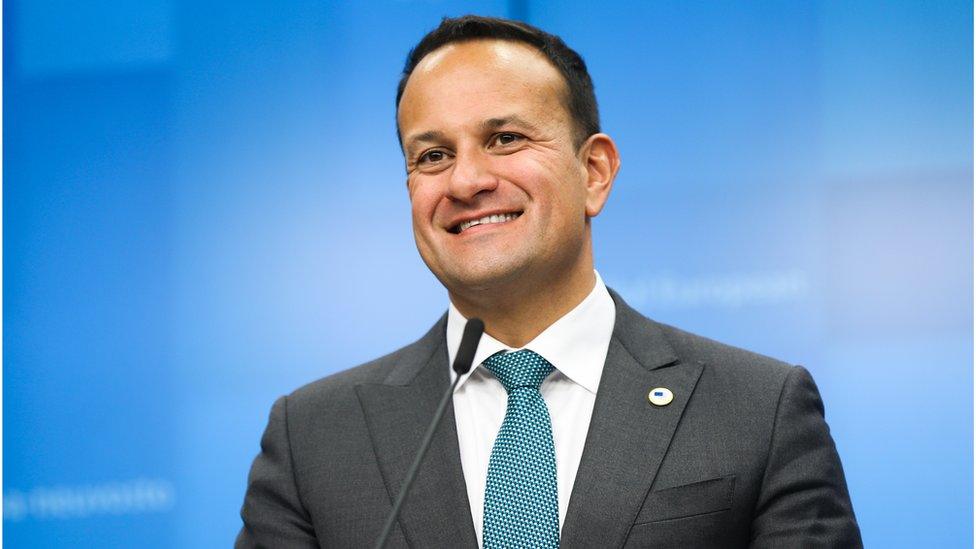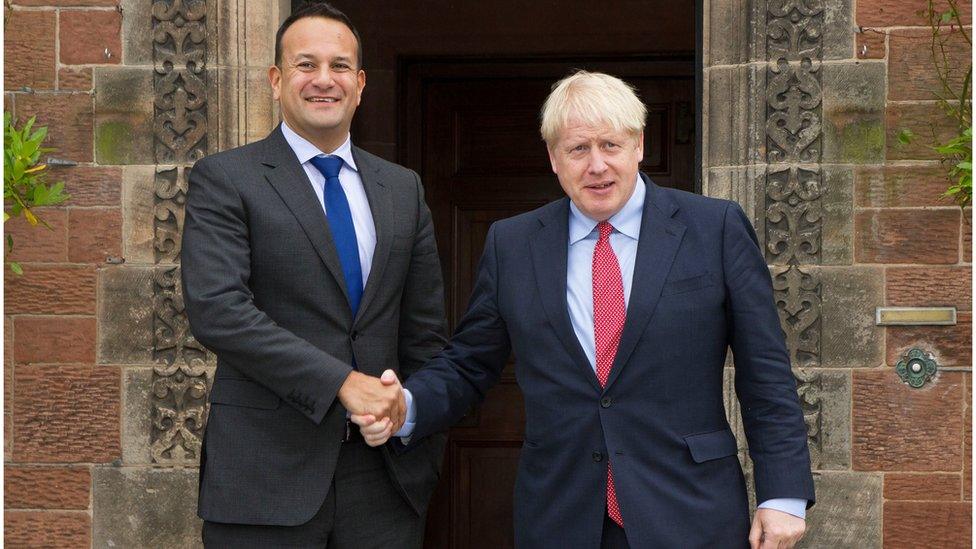Varadkar: UK won't get 'piecemeal' EU trade deal
- Published

For a long time, Irish Prime Minister Leo Varadkar has sidestepped talking at length about his role in the fraught political journey of Brexit in the last few years.
But with just a few days until the UK's departure, he opened up a little, in an interview with me, about what happened, and what might unfold next.
The Taoiseach suggested that the EU will have the upper hand in the upcoming trade negotiations, saying: "We have a population and a market of 450 million people, the UK it's about 60, so if these were two teams up against each other playing football, who do you think has the stronger team?"
He also warned against any UK attempt to get a "piecemeal" deal with the EU, saying: "When I hear people talk about piecemeal, it sounds a bit like cake and eat it," and added "That isn't something that will fly in Europe."
But when I asked him if Ireland had been too stubborn in the last couple of years, he suggested that it was the UK had misread the first phase of Brexit, suggesting that many people in Westminster and Britain "don't understand Ireland".
He said there was an imagined scenario that France, Germany and Britain would get together at a big summit and tell the small countries what's what. But he said: "That's not the way the 21st Century works. That's certainly not the way the EU works".
Echoing other leaders, Mr Varadkar also questioned the the timetable set by Boris Johnson to get a trade deal with the rest of the EU by the end of the year.
He disagreed with the Prime Minister's claim that there is "bags of time", saying: "It will be difficult to do this," and suggesting that there might have to be an extension to the next part of the Brexit process, beyond the end of this year, to finalise a trade deal.
He did however pledge to work "night and day" to try and get it done and said: "We won't be dragging our feet".
The Taoiseach said to get a deal there would have to be legal assurances that the UK would not undercut the EU, agreeing a "common set of minimum standards", that would have to be "high standards".
There is no question it's going to be a key area of contention in the coming months, saying that he did trust Boris Johnson, but that it was in "black and white" that were would have to be some checks on goods going from Great Britain into Northern Ireland, despite Boris Johnson's repeated insistence that there will not have to be.

Mr Varadkar and Mr Johnson held private talks in a bid to break the Brexit deadlock at Thornton Manor Hotel, on The Wirral, Cheshire.
Looking back, Mr Varadkar said he had been genuinely afraid that the UK might have left the EU without a deal, but that a meeting between the two men on the Wirral in the autumn had provided the "crucial moment".
He said the progress at the summit was the "simple story" of "two guys in a room… talking turkey" without their staff present, where they found a way that they could move forward.
"I knew when I was leaving Liverpool Airport that things were looking promising again," he said.
Michel Barnier will visit the Irish leader again today, another statement of intent about how Ireland's position will be taken into consideration by the EU at large, a situation that the government here in Dublin has no wish to leave behind.
